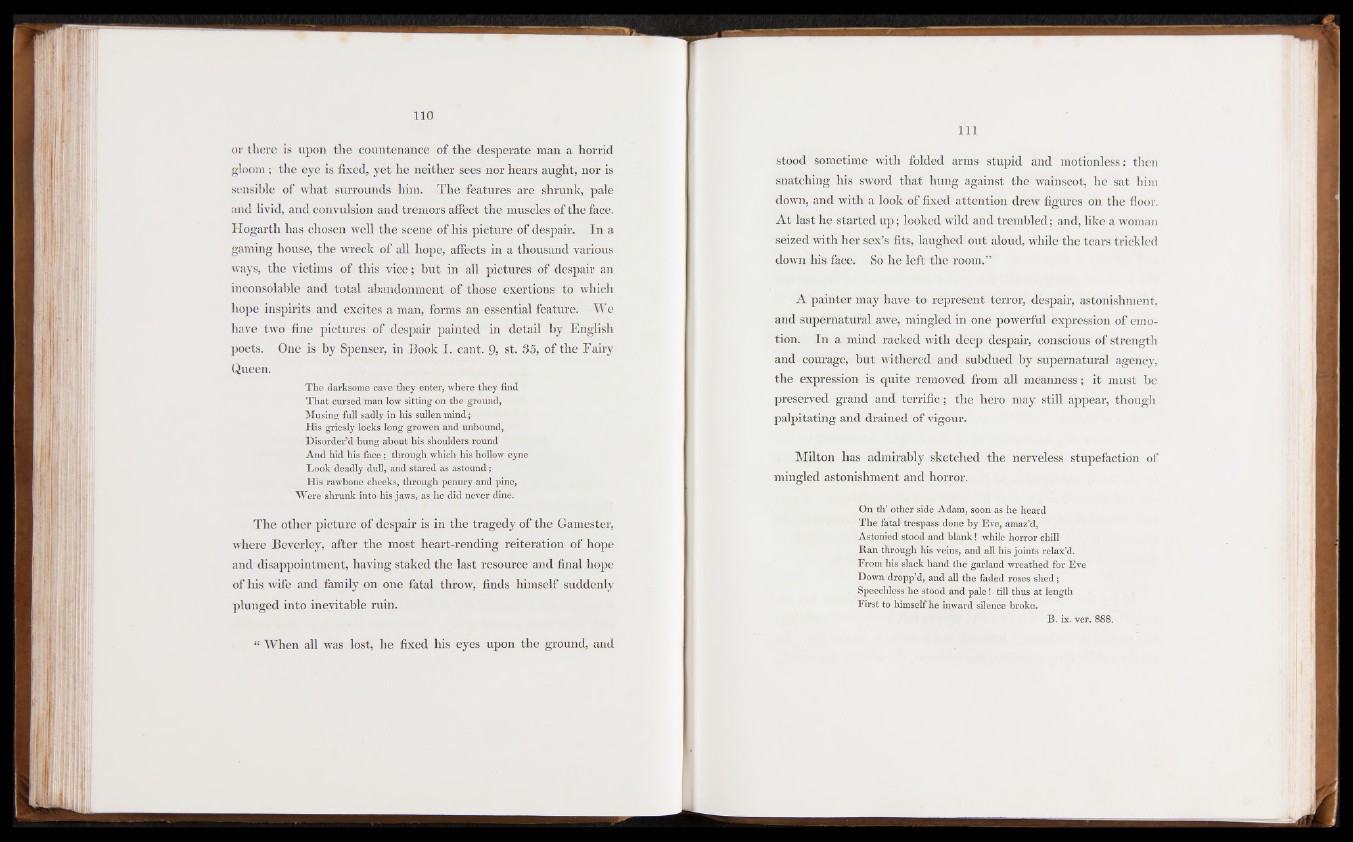
or there is upon the countenance of the desperate man a horrid
gloom; the eye is fixed, yet he neither sees nor hears aught, nor is
sensible of what surrounds him. The features are shrunk, pale
and livid, and convulsion and tremors affect the muscles of the face.
Hogarth has chosen well the scene of his picture of despair. In a
gaming house, the wreck of all hope, affects in a thousand various
ways, the victims of this vice; but in all pictures of despair an
inconsolable and total abandonment of those exertions to which
hope inspirits and excites a man, forms an essential feature. We
have two fine pictures of despair painted in detail by English
poets. One is by Spenser, in Book I. cant. 9> st. 35, of the Fairy
Queen.
The darksome cave they enter, where they find
T hat cursed man low sitting on the ground,
Musing full sadly in his sullen mind;
His griesly locks long growen and unbound,
Disorder’d hung about his shoulders round
And hid his face; through which his hollow eyne
Look deadly dull, and stared as astoimd;
His rawbone cheeks, through penury and pine,
W ere shrunk into his jaws, as he did never dine.
The other picture of despair is in the tragedy of the Gamester,
where Beverley, after the most heart-rending reiteration of hope
and disappointment, having staked the last resource and final hope
of his wife and family on one fatal throw, finds himself suddenly
plunged into inevitable ruin.
“ When all was lost, he fixed his eyes upon the ground, and
stood Sometime with folded arms stupid and motionless: then
snatching his sword that hung against the wainscot, he sat him
down, and with a look of fixed attention drew figures on the floor.
At last he started up; looked wild and trembled; and, like a woman
seized with her sex’s fits, laughed out aloud, while the tears trickled
down his face. So he left the room.”
A painter may have to represent terror, despair, astonishment,
and supernatural awe, mingled in one powerful expression of emotion.
In a mind racked with deep despair, conscious of strength
and courage, but withered and subdued by supernatural agency,
the expression is quite removed from all meanness; it must be
preserved grand and terrific; the hero may still appear, though
palpitating and drained of vigour.
Milton has admirably sketched the nerveless stupefaction of
mingled astonishment and horror.
On th’ other side Adam, soon as he heard
The fatal trespass done by Eve, amaz’d,
Astonied stood and blank! while horror chill
Ran through his veins, and all his joints relax’d.
From his slack hand the garland wreathed for Eve
Down dropp’d, and all the faded roses shed;
Speechless he stood and pale! till thus at length
First to himself he inward silence broke.